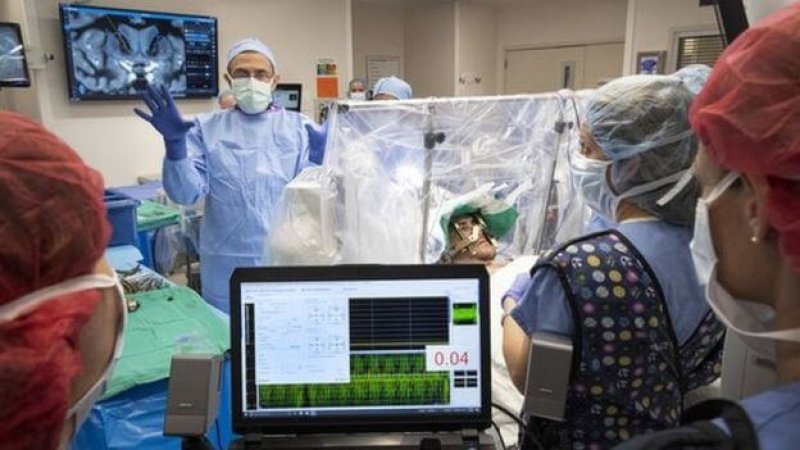A surgeon has implanted electrodes in the brain of a patient suffering from severe opioid use disorder, hoping to cure the man’s intractable craving for drugs in the first such procedure performed in the United States.
…
The deep brain stimulator, which functions much like a heart pacemaker, was implanted by Ali Rezai, executive chairman of the West Virginia University Rockefeller Neuroscience Institute. His patient, 33-year-old hotel worker Gerod Buckhalter, said he had been unable to remain sober for more than four months since the age of 15, despite trying a variety of medications and other inpatient and outpatient treatments.
Buckhalter is the first of four people in a pilot program, which aims to demonstrate that the technique is safe so that a full-scale clinical trial can be conducted. It is aimed at a small percentage of opioid abusers with the most treatment-resistant cravings for opioids, who may face a lifetime of overdoses, relapses, inability to hold a job and other consequences of addiction.
…
Buckhalter said he tries not to consider what he will do if deep brain stimulation doesn’t work for him.
“If it doesn’t work, then it doesn’t work,” he said.
Read full, original post: Deep brain stimulation is being tested to treat opioid addiction































